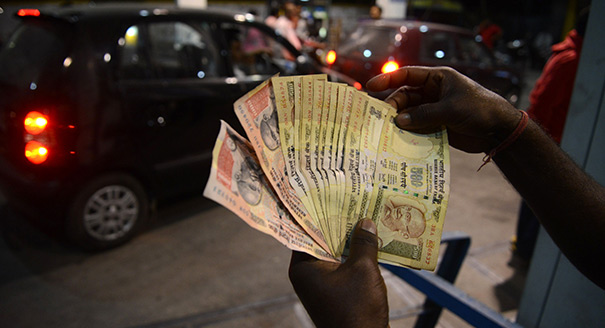Registration
You will receive an email confirming your registration.
Online registration has closed. Onsite registration will be available.
On November 8, 2016, Indian Prime Minister Narendra Modi shocked the nation—and the world—by announcing his decision to “demonetize” 86 percent of India’s cash in circulation in an effort to address the scourge of black money in the country. While the currency gambit has been a political success story thus far, its economic returns are less certain.
In a new paper for Carnegie India, “India’s Post-Demonetization Policy Agenda,” V. Anantha Nageswaran and Gulzar Natarajan argue that the opportunity to reshape the Indian economy afforded by demonetization needs to be treated as more than a simple revenue-raising exercise. Nageswaran will outline how the Modi government can use demonetization to curb the creation of black money, increase the size of the formal sector, and eliminate regulatory distortions. Carnegie’s Milan Vaishnav will moderate.
V. Anantha Nageswaran
V. Anantha Nageswaran teaches at the Singapore Management University and at the Indian Institutes of Management in Bangalore and Indore in India. He writes a weekly column for Mint, an Indian financial daily.
Milan Vaishnav
Milan Vaishnav is senior fellow and director of the South Asia Program at the Carnegie Endowment for International Peace, where he works on the political economy of India. Follow him on Twitter @MilanV.
